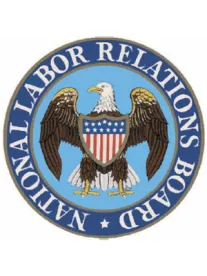Over a year ago, the regional office of the National Labor Relations Board (NLRB) in Chicago concluded that scholarship athletes on the Northwestern University football team were “employees” within the meaning of the National Labor Relations Act, giving them the right to unionize and bargain over terms and conditions of their purported employment. The ruling garnered national attention and raised the specter of a massive shift in how college athletics operated. However, on August 17, a panel of the NLRB reviewing the Regional Director’s ruling declined to exercise jurisdiction over the petition to unionize Northwestern University’s football players. Essentially declaring that the Regional Director’s initial authorization of the petition was a false start, the NLRB emphasized the practical realities of the case in concluding that allowing the petition would not “promote stability in labor relations.” It noted that the vast majority of Northwestern’s FBS competitors are public universities over which the NLRB has no jurisdiction. Since major college football is interconnected, the NLRB reasoned that allowing one school’s players to be unionized would not promote labor relations and might upset the balance of competition. Northwestern, the only private school in the Big Ten within the NLRB’s jurisdiction, did not need another competitive hurdle, and issued a statement, along with the National Collegiate Athletic Association (NCAA), applauding the decision.

While so ruling, the Board did not overrule the Regional Director’s determination that the players were “employees.” In fact, if anything, it implied that they were. Also, the Board painstakingly and repeatedly stated that its decision was limited to Northwestern and this particular situation and invited a replay if the game changed. It also positively commented on recent pro-player changes implemented by the NCAA and Northwestern. This is a final ruling, and therefore the clock has run out for the petitioning players.
The decision surprised the odds makers in that the NLRB exercised real restraint. However, the narrowness of the ruling should not raise expectations that the NLRB will be shy about exercising jurisdiction in other cases or advancing a pro-labor agenda, as it has repeatedly done over the past several years.




 />i
/>i

